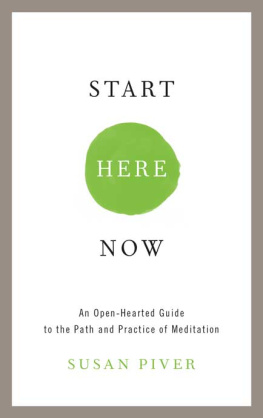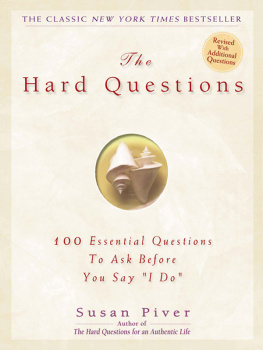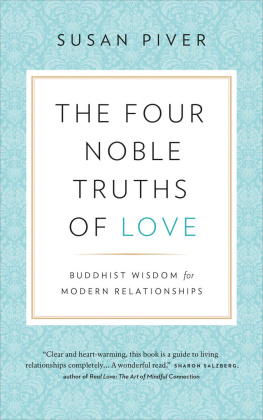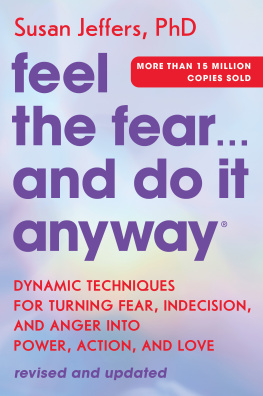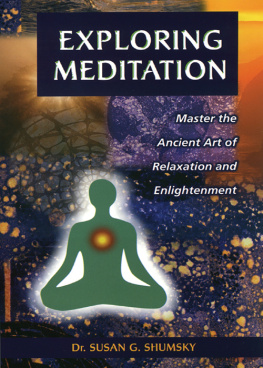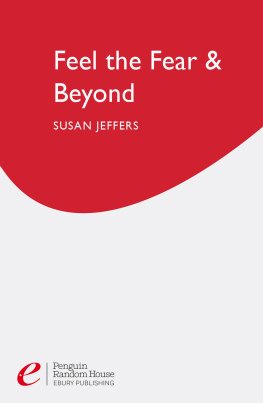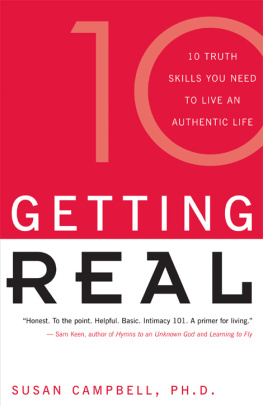Praise for How Not to Be Afraid of Your Own Life
I have long recommended meditation as central to a healthy lifestyle. Susan Piver teaches this important practice in a trust-worthy and practical wayand shows us how to use its lessons to create a fearless life.
Andrew Weil, M.D., author of Healthy Aging
Susan Piver has worked her magic again. She gives us an everyday approach to Buddhism, so that all of us can benefit from the wisdom of this magnificent philosophy. In this wacky world we all need practices and perspectives that ground us in the here and now. Navigate and swim the river more gracefully with Susans advice.
Rodney Yee, coauthor of Yoga: The Poetry of the Body
In direct and playful language, Susan Pivers new book translates Buddhist wisdom to show its relevance to daily life.
Stephen Cope, author of Yoga and the Quest for the True Self
Susan Piver has written a beautiful book about how to overcome fear and be empowered in your life based on her years of Buddhist practice.
Judith Orloff, M.D., author of Positive Energy: 10 Extraordinary Prescriptions for Transforming Fatigue, Stress, and Fear into Vibrance, Strength, and Love
How can we live a life more awake, present, and connected without the impediments of beliefs, ideas, and fears created from past experience? In simple but startlingly clear language, Piver takes the mystery out of Buddhism, and makes it relevant to our struggles to be happy in the twenty-first century.
Mark Hyman, M.D., author of Ultrametabolism:
The Simple Plan for Automatic Weight Loss
ALSO BY SUSAN PIVER
The Hard Questions: 100 Essential Questions
to Ask Before You Say, I Do
The Hard Questions for an Authentic Life
The Hard Questions for Adult Children and Their Aging Parents
Joyful Birth
Joyful Wedding
Joyful Mind
HOW NOT TO BE
AFRAID of
YOUR OWN LIFE
Opening Your Heart to Confidence,
Intimacy, and Joy
SUSAN PIVER

ST. MARTINS GRIFFIN
New York

HOW NOT TO BE AFRAID OF YOUR OWN LIFE . Copyright 2007 by Susan Piver. All rights reserved. Printed in the United States of America. No part of this book may be used or reproduced in any manner whatsoever without written permission except in the case of brief quotations embodied in critical articles or reviews. For information, address St. Martins Press, 175 Fifth Avenue, New York, N.Y. 10010.
www.stmartins.com
Meeting Relationships with Loving-Kindness, in , appeared in
slightly different form in the Shambhala Sun magazine in February 2006.
Library of Congress Cataloging-in-Publication Data
Piver, Susan, 1957
How not to be afraid of your own life: opening your heart to confidence, intimacy, and joy / Susan Piver.
p. cm.
ISBN-13: 978-0-312-35597-5
ISBN-10: 0-312-35597-1
I. MeditationBuddhism. 2. Spiritual lifeBuddhism. 3. FearReligious aspectsBuddhism. I. Title.
BQ5620.P58 2007
94.3'4435dc222
2006048907
First St. Martins Griffin Edition: January 2008
10 9 8 7 6 5 4 3 2 1
TO
SAKYONG MIPHAM RINPOCHE,
who opened the gate to the treasury of oral instructions,
TO MY PARENTS ,
LOUISE AND JULIUS PIVER,
for their unceasing generosity,
AND TO
DUNCAN BROWNE,
who knows how to love
CONTENTS
Grant your blessing so that my mind may be one with the dharma.
Grant your blessing so that dharma may progress along the path.
Grant your blessing so that the path may clarify confusion.
Grant your blessing so that confusion may dawn as wisdom.
THE FOUR DHARMAS OF GAMPOPA
Introduction
EACH OF US IS born seeking a meaningful life. We have a natural ability to sense what is significant, live in peace, and surround ourselves with love. We come into this world wanting these things and only these things. No baby (that I know of) ever wished for a cooler car seat, hated her thighs, or doubted a mothers love. From the moment we arrive, we are instinctively drawn toward warmth, closeness, and acceptance. When the world doesnt provide what we seek, were shocked. The rejection is completely unexpected, and we withdraw. Once we have met with a negative reception, our initial response to new faces and first-time experiences becomes fear, not love. At this point we have lost touch with reality, not the other way around, because to live in fear is to live in a delusional state. When we are fearful, we simply cant see who or what is in front of usall we see is our fear, and that is what we react to, plan for, and anticipate.
Fear can be conquered. We can meet any situation, important or trivial, old or new, surprising or predictable, with self-confidence, gentleness, and elegance. And we dont have to change one thing about ourselves to do so. In fact, we already possess all the courage well ever need, and itnot fearcan animate the way we think about ourselves, others, and the world. The ancient practice of meditation can show us how.
Meditation will be our working basis, the foundation for this exploration. Instead of constantly evaluating yourself for inherent worth or worthlessness, meditation helps to plant self-view in equanimity. Instead of creating a new and better you, meditation reveals your innate perfection. Perhaps most important, instead of reacting to others with impatience, judgment, anger, or desperation, meditation teaches you to blossom open to whomever you encounter and transform the energies you meet into patience, power, and kindness.
Remember, we were born without fear and have a natural ability to love. Returning to our inborn fearless state requires unlearning certain things, not acquiring new skills. We dont have to become daring where were risk-averse, calm when were anxious, or self-loving if we have self-doubt. Instead, we can relax. We can learn how to be who we already are, honestly, unapologetically, and intelligently, embracing everything thats wonderful about our life and everything thats a mess. We can stop defending the personal or professional territory we own or wish to own. We dont have to feel afraid of change, loss, rejection, or stress. Nor do we have to fear what may happen to us in the course of daily life; we can cultivate a kind of intelligence and skill that neutralizes fear on the spot.
Aggression, self-righteousness, and pride are not signs of fearlessness. Gentleness, joy, and self-confidence are. These qualities arise from the genuine effort to make friends with ourselves and to accept ourselves exactly as we are, right at this moment. This is the key to fearlessness and this is the skill taught by meditation.
Its All Personal
I have spent ten years practicing Buddhist meditation and studying the philosophy behind it. While it may seem unlikely that a twenty-five-hundred-year-old tradition could have anything to do with the stresses of twenty-first-century life, with the fear of terrorism, insane credit card debts, and endless e-mail, I found that the practices associated with this deep, compelling, and nondogmatic tradition began to soften my worst fears and longest-standing neuroses. I learned how to address directly what frightens me with generosity and patience. Its not that being afraid now feels good, but I am confident I have what I need to meet my fears wholeheartedly and transform them. Id like to share with you what Ive been taught, offer my understanding of some traditional Buddhist teachings in plain language, and show you what has helped me to stop being afraid of my own life.
Next page

